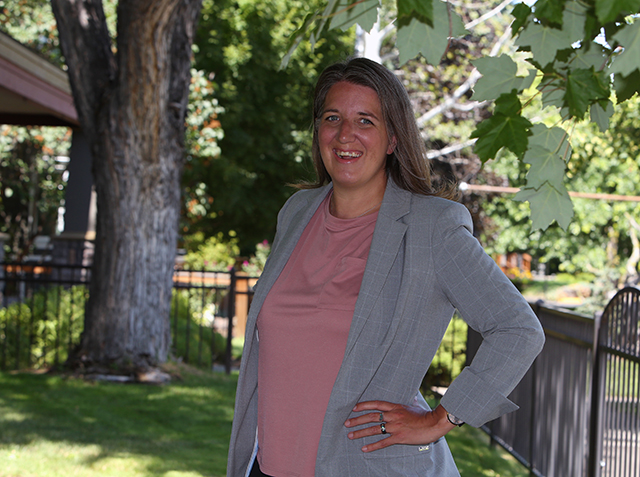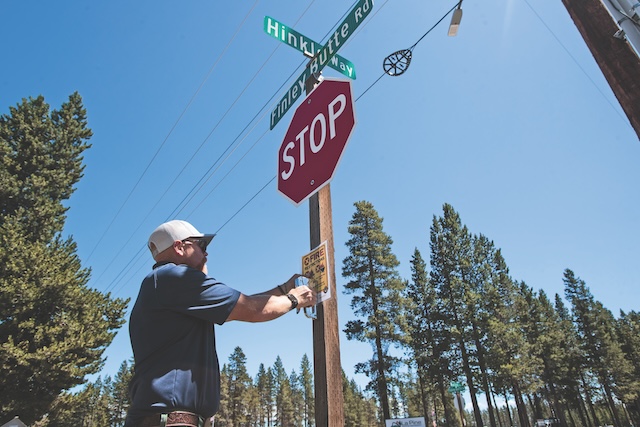Bend woman’s cancer recovery helps create new law
Published 5:21 am Tuesday, July 15, 2025

- Gail Menasco, who helped write Senate Bill 1137, stands outside her Bend home Wednesday afternoon.
When Gail Lovelace Menasco learned she needed a double mastectomy because of a breast cancer diagnosis, she scoured any information she could find.
As she learned about her cancer and how best to treat it, she ran headlong into obstacles.
First, the only option she was given for her double mastectomy was breast implants. Second, if she wanted to preserve as much of her body as possible, there were no surgeons in Bend who could do breast reconstruction using techniques that would preserve her muscles. And then there was the nightmare of cost and health insurance coverage.
Trending
She didn’t want an implant. And she didn’t have the $100,000 her insurance company said it would cost her if she insisted on the kind of surgery she wanted, even though her policy had a $10,000 out of pocket maximum.
All these obstacles did was strengthen her resolve. Menasco’s odyssey took her to the Oregon State Legislature. There she found support from lawmakers, but also a way to help other women in the same place she was.
“Not every woman wants an implant,” said Menasco, 40. “It’s case by case, but the kind of surgery I wanted wasn’t offered in-network. I was able to get my surgery a few months after being diagnosed because I advocated hard … I was able to preserve the muscle, but it shouldn’t be this hard. You shouldn’t have to advocate to boards of directors or write legislation to get access to care.”
Senate Bill 1137, approved by lawmakers this year and now on the desk of Gov. Tina Kotek, requires health insurance companies to cover breast reconstruction procedures with conditions that are no less favorable than implants.
With the bill passing both houses, Menasco isn’t sitting back and resting on her victory. She formed a nonprofit called the Breast Cancer Reconstruction Advocacy Society. And she has been invited to help establish rules to put the legislation into practice by sitting on committees.
“Gail’s bill is a testament to the power of our citizen legislature,” said state Sen. Anthony Broadman, D-Bend. “She helped us change the outlook for Oregonians who beat cancer … helping Oregonians who beat breast cancer to have more options for full, healthy lives.”

Gail Menasco of Bend, who helped write Senate Bill 1137, holds a copy of it inside her Bend home Wednesday afternoon.
Trending
Testimony broke barriers
During her testimony at the state capitol, lawmakers like Rep. Emerson Levy, D-Bend stepped forward too and talked of their breast cancer journey. State Sen. Kate Lieber, D-Beaverton cried during a committee discussion.
“She’s a bulldog in the best possible way,” Levy said. “She was worried about her body rejecting the implants and she didn’t want them. In fact, most women don’t want them. Gail (Menasco) didn’t want other women to have to go through this. Her story helped convince lawmakers about this. She talked with every lawmaker.”
How she got here
Menasco was 38 when she was diagnosed and the course of treatment was a double mastectomy. She explored aesthetic flat closure, implants and autologous reconstruction, where a woman’s own tissue is used to rebuild a breast.
She felt that deep inferior epigastric perforator, or DIEP, surgery would work the best for her. It’s a microsurgical procedure that aims to create a natural-looking and feeling breast while preserving the abdominal muscles. Unlike an implant surgery that needs replacement, this surgery lasts a lifetime, Menasco said.
But discussions with surgeons in Oregon, Washington, Idaho and Utah, came up with no one trained in other techniques that could preserve her muscle and reduce complications.
“I realized how broken our system is,” Menasco said.
Not even a federal law, the Women’s Health and Cancer Rights Act of 1998, could help her get the kind of breast reconstruction she sought.
The legislation passed by lawmakers in Oregon this session ensures that women can go out-of-network at in-network rates until an insurance company can prove it has an adequate network to do that work, she said.
“I don’t know how I did this,” she said. “I found it in me to fight. I was mad at how the system was working andI turned my anger into something that was good for others. “
Reporter: 541-633-2117, sroig@bendbulletin.com










